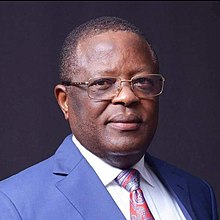…Advocates productive use of tax incentive system
By Chimezie Godfrey
The Executive Director, Civil Society Legislative Advocacy Centre(CISLAC) and
Head of Transparency International – Nigeria, Auwal Rafsanjani has called on the National Assembly not to be in a hurry to just pass the 2023 Appropriation bill until they have worked out alternative source of funding the budget deficit other than borrowing.
Rafsanjani made the assertion while speaking on the topic”Nigerian National Debt: More of an Accountability Crises than Economically Induced,” during the media interaction at the IMF/World Bank Annual Meeting in Washington DC, USA.
He disclosed that public finance integrity in Nigeria is probably at its lowest state, adding the debt profile has defied all economic prudence frameworks that exist in the laws.
Rafsanjani pointed out that the 2023 Appropriation bill to the National assembly by President Buhari contains a budget estimate to the tune of #20.5trn with an expected revenue of #9.7trn and expected (additional) borrowing to the tune of #8.8trn, adding that if this scales through, Nigeria’s debt stock will be at #50.8trn.
According to him, this is not just worrisome but also scary considering the state of our economy that we are already in, this situation looks like nothing else than escalated poverty and exacerbated austerity.
On the issue of Tax Administration in Nigeria, he said the leakages that exist within the financial architecture of Nigeria as a country creates a default opportunity for ineffective taxation and consequently failure in optimizing our revenue that is required for national development.
Among other issues, he decried organized corruption in the extractive sector governance, absence of economic team, policy actions that choke the middle class and the informal sector, procurement issues, and the engagement of the Central Bank of Nigeria in projects and service delivery that are supposed to be domiciled in one of the Ministries, Agencies or Departments of the federal or state government.
In the light of the foregoing, Rafsanjani therefore recommended that the NASS should ensure that the interest of the Nigerian people are considered before pass the passing the 2023 Appropriation Bill, among other recommendations.
He said,”Having outlined these contributors as stated above, we wish to proffer these few recommendations as a means to get out of this menace that has plunged the Nigerian economy into a ditch.
“Alternative funding sources – National Assembly must work for the interest of Nigeria and its people. We call on the National Assembly to not be in a hurry to just pass the 2023 Appropriation bill until they have assembled a team of economic experts in conjunction with the executive, who will work out alternative source of funding the budget deficit other than borrowing.
“Tax incentive must be productive and reduced budge size and waste.This is the time to make good use of the incentive system to allow the private sector fund the capital projects in the budget. It is also important to scrutinize the budget and weed out frivolous items as we always have them featured in the budget year in year out.This will also look at a possible reduction in the budget size and make it more reasonable and realistic as we are not in any budget increment contest.
“Setting up of an economic team- this should be considered a death and life issue as it really is, the life wire on which our economy depends on now is about finding the way forward out of the mess we are already in. there should be a team that will come up with a robust plan that will be implementable and sustainable with a detailed steps towards economic recovery. This should include how all sectors will contribute effectively towards achieving the set goals as will be contained in the plan.
“Refocus the Apex Bank – the central bank of Nigeria should be refocused to its major mandates in a bid to being the major driver of any anticipated recovery. Efficient economic recovery highly depends on the economic framework management and this is and should be the primary focus of the apex bank instead of delving into direct service deliveries that already should be done by one of the numerous MDAs in the country.
“Effective implementation of the anti-corruption commitments – the Nigerian government has strongly signed on to a number of strategic commitments within the global space that should help in fighting corruption. Among them and the most prominent are the beneficial ownership disclosure and contract transparency. These has the capacity to reduce economic sabotaging tools to the barest minimum, it will reduce terrorism financing which is also a major contributor to an unconducive economic environment. Strengthening of all the mechanisms that are needed for these two initiatives to thrive is a sure way towards economic recovery and debt reduction in Nigeria.
The Human Rights Activist urged the Nigeria Government to set up the procurement council, adding that an outright disobedience to the law is a sure means of getting it all wrong.
He explained that the procurement council is needed to reduce the level of discretion and abuse of office that plays out in the contracting processes in Nigeria.
According to him, this has proven to the most potent drain pipe from which politically exposed persons allocate contracts to themselves and their cronies, allocate funds and never gets the work done, meanwhile these resources are supposed to be from borrowed funds for which the country is paying heavily on.
He urged the government to leverage on the existing frameworks that contributes to economic recovery, adding that there are several frameworks that exist within the nation’s numerous laws.
“If we as a country leverage on these very good intents of the law, we will do much better. Among them will be the Fiscal Responsibility Act provision as regarding financial prudence; the beneficial provisions of the African Continental Free Trade Agreement (AfCFTA); The Financial Action Task Force (FATF) recommendations on reducing illicit financial flows and terrorism financing; the provisions of the Extractive Industries Transparency Initiative (EITI) on beneficial ownership and contract transparency disclosure; other commitments within the Open Government Partnership initiatives that supports financial management and economic recovery,” he said.
Rafsanjani pointed out that the upcoming 2023 general elections presents another opportunity for Nigerians to look at the mandates that each aspiring candidate is coming forward with and vote wisely.




